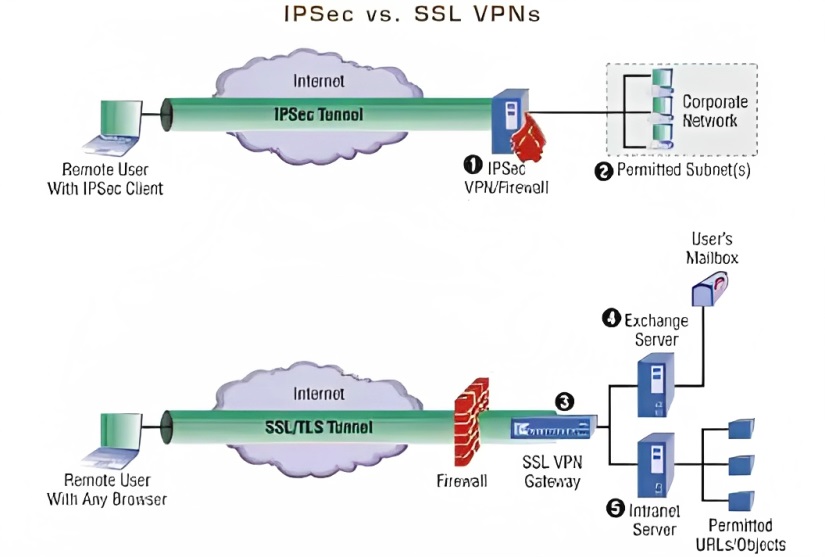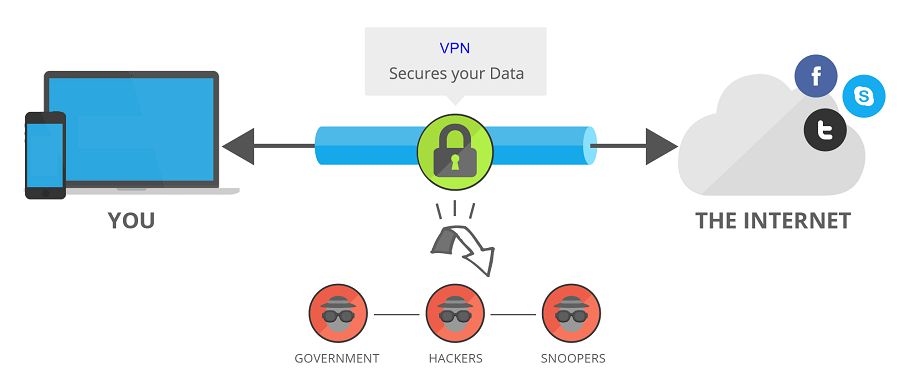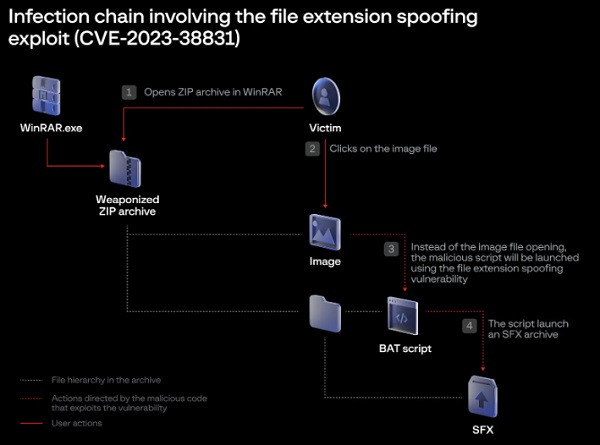What is VPN – Difference between SSL VPN and IPSec VPN
VPN stands for Virtual Private Network, and it is a technology used to secure and encrypt internet connections. A VPN creates a private, secure connection between a user’s device and the internet, protecting the user’s online activity and personal information from being seen or intercepted by others.
VPNs are commonly used by businesses, organizations, and individuals to securely connect to the internet from remote locations, access restricted websites and content, and protect their online activity from surveillance and cyber threats.

There are several types of VPNs and VPN protocols from industry standards:
PPTP (Point-to-Point Tunneling Protocol):
PPTP is one of the oldest VPN protocols and is commonly used for personal VPNs. It is fast and easy to set up, but it is also less secure than other VPN protocols.
SSTP (Secure Socket Tunneling Protocol):
SSTP is a VPN protocol developed by Microsoft and is often used in Windows-based VPNs. It provides a high level of security and is difficult for firewalls to block.
OpenVPN:
OpenVPN is an open-source VPN protocol that provides a high level of security and is widely used in both commercial and personal VPNs.
IKEv2 (Internet Key Exchange version 2):
IKEv2 is a VPN protocol that provides fast speed, high security, and reliability. It is commonly used in mobile VPNs and is known for its ability to quickly re-establish a VPN connection if it is lost.
Site-to-Site VPN:
A site-to-site VPN is used to connect two or more separate networks to create a private, secure network connection between them. This type of VPN is commonly used by businesses and organizations to connect their different locations and networks.
WireGuard:
WireGuard is a relatively new VPN protocol that is known for its simplicity and speed. It is considered to be more secure than older VPN protocols and is gaining popularity in the VPN industry.
See more: What is email authentication – SPF, DMARC and DKIM
SSL VPN:
Secure Socket Layer Virtual Private Network(SSL VPN) is a type of VPN that uses SSL, a protocol for establishing secure links between networked computers, to secure the connection. SSL VPNs are typically easier to set up and use than IPSec VPNs and do not require the installation of client software. Instead, users can access the VPN through a web browser.
IPSec VPN:
Internet Protocol Security Virtual Private Network(IPSec VPN) is a type of VPN that uses IPSec, a set of protocols for securing internet protocols, to secure the connection. IPSec VPNs are more secure than SSL VPNs, but they can be more complex to set up and use. Users must install client software in order to access the VPN, and the client software must be compatible with the IPSec protocols used by the VPN server.
Difference between SSL VPN and IPSec VPN
Security: When it comes to security, IPSec VPNs are considered to be more secure than SSL VPNs. IPSec VPN uses advanced encryption algorithms, such as AES and 3DES, to encrypt data, while SSL VPNs use less secure encryption algorithms, such as RC4 and DES. Additionally, IPSec VPNs use stronger authentication mechanisms, such as digital certificates, to authenticate users and devices, while SSL VPNs typically use weaker authentication mechanisms, such as passwords.

Access: SSL VPNs are typically easier to access than IPSec VPNs. Users can access an SSL VPN through a web browser, while users must install client software in order to access an IPSec VPN. Additionally, SSL VPNs are more flexible when it comes to accessing resources, as they allow users to access a wide range of resources, including websites, applications, and file shares, while IPSec VPNs typically allow users to access only specific resources.
Performance: IPSec VPNs can be faster and more reliable than SSL VPNs, as they use a dedicated VPN client that provides a more direct connection to the VPN server. Additionally, IPSec VPNs can provide better network performance, as they can be configured to prioritize network traffic and can use dedicated bandwidth for VPN traffic.
See more: Top 7 Attacks on Active Directory: What You Need to Know
In conclusion, the choice between SSL VPN and IPSec VPN depends on your specific needs and requirements. If you are looking for a simple and easy-to-use VPN solution that does not require the installation of client software, an SSL VPN might be a good option for you. However, if you are looking for a more secure and reliable VPN solution, an IPSec VPN might be a better choice.
We hope you found article interesting. For more exclusive content follow us on Facebook, Twitter and LinkedIn






